This weekend justice will finally be served as Andre Reed is inducted as a member of the 2014 class for the Pro Football Hall of Fame. The Bills all-time leading receiver, who ranked third in catches and fourth in yards when he retired looked like an obvious choice to those who closely followed his long and distinguished career. So just what kept Reed, a Hall of Fame finalist for eight straight years, from gaining the necessary support for enshrinement? And what changed the conversation to finally get him the required support for induction in 2014?
Buffalobills.com spoke with members of the Pro Football Hall of Fame 46-person Selection committee to definitively discover why the final dominoes fell Reed's way in his eighth year as a finalist, including Buffalo News Bills beat reporter Mark Gaughan, Reed's presenter in the room. Here now is a closer look at the factors and developments over the years that worked for and against the best receiver the Buffalo Bills franchise has ever had.
Laying the groundwork

The first year that Andre Reed was selected as a Hall of Fame finalist was in 2007. First ballot Hall of Famers are extremely rare and with other receivers on the ballot in addition to his own teammate Thurman Thomas it was hard for Reed's presenter Mark Gaughan to find a way that Reed would have the support necessary for enshrinement. So his plan was to provide a history lesson on Reed as a supreme physical talent.
"The first year I knew he wasn't getting in realistically because Thurman was up, so I tried to cement the idea that even though he was a fourth-rounder from Kutztown he was truly an elite athlete who belonged in the same category as the (Ray) Nitschkes and the (Mike) Singletarys and the Ronnie Lotts. He was truly elite," Gaughan said. "Why was he a fourth rounder from Kutztown? You tell the whole story about him being a late bloomer. It was about establishing him as elite."
Gaughan wanted to dispel any thoughts of Reed being seen as an overachiever who happened to fall into a great situation with a collection of outstanding talent around him on those Bills teams.
"So I made sure to convey that he was an unbelievable, elite physical specimen and here's why he went to Kutztown," he said. "So that was laying the groundwork."
That first year Reed was not chosen for induction, but Michael Irvin was as was his teammate Thurman Thomas. Irvin did not have outstanding numbers, but he did have three Super Bowl rings, two of which came against the Bills.
Roadblocks

In the years that followed there were players every bit as talented both at his position and others who would ultimately keep Reed from making the final cut.
"In 2008 it was Art Monk who got in. Monk had waited. It was Monk's eighth year like Andre this year," said Gaughan. "In 2009 Bruce (Smith) and Ralph (Wilson) got in."
That was followed by what was quickly dubbed a "logjam of receivers" beginning in 2010 when three receivers, Tim Brown, Cris Carter and Andre Reed all made the list of 15 finalists. It happened again in 2011, 2012 and 2013.
"They all have great credentials and Andre had actually made it to the final 10 cut down in 2011 and 2012, which shows what a difference of opinion there was," said Gaughan. "They were all very highly regarded, but they kept knocking each other out."
Shifting the focus
Gaughan had the annual challenge of convincing the other Selectors that Reed was worthy of Hall of Fame recognition, and he had to do it with a receiver who did not have career numbers as lofty as the other two receiver finalists in the room in Brown and Carter. He had to pursue different angles that helped to show why Reed was a football talent who should be remembered for all time.
"I tried to put a little bit different spin on it every time," said Gaughan. "To make it fresh number one, but also you still had to hammer home the key points because every year there are one or two different voters in the room and you can't presume that everyone knows that in the Comeback Game (Jim) Kelly was on the sidelines, Thurman (Thomas) was on the sidelines and (Cornelius) Bennett was on the sidelines so you have to re-state that. It's such a close race you can't lose one vote. Eight or nine no votes and your guy is out."
|
[  ](prod.static.bills.clubs.nfl.com/assets/pdf/AndreReedBooklet2014.pdf) |
| From a complete football bio to statistics, Hall of Fame voters had all the necessary information to weigh Andre Reed's candidacy (pdf). |
One year Gaughan led his speech with Reed's exploits in the postseason. Another year he highlighted the special combination that Jim Kelly and Reed were being one of the most prolific scoring tandems in league history. One year he even asked USA Today NFL reporter and committee member Jarrett Bell to present Reed just to lend a different voice to the presentation.
"The Andre Reed thing, what really stuck with me from all of the years and all of the discussions is when you look at this guy who came from Kutztown State, to perform the way he did in Buffalo as a wide receiver," said Bell. "The other thing with Andre was there was not always a well-established receiver on the other side. He had Thurman out of the backfield and James Lofton at the end of his career, but Andre in the slot you can argue that two ways. You can say it's easier for a slot receiver to put up numbers, but Andre was a consistent guy that they had to have to make all the other stuff work."
Bell however, was no more successful than Gaughan, who resumed his presentation responsibilities the following year.
Fully aware of the problem the receiver logjam first presented in 2010, Gaughan in his fifth crack at presenting Andre in 2011 came up with his most effective argument.
"I led with the argument of considering (the receivers) by era and who are we putting in at receiver from the 90's? You make up your list. Decide in your mind who you like," said Gaughan. "And I had a list ready for them of course. Now if you're a presenter you can't be knocking another candidate in your presentations. Then you could lose a voter that way."
Gaughan's list showed how there were four receivers from the 1950's who had been enshrined, seven in the 60's, four in the 70's and four in the 80's. Then he listed the group of receivers in the 1990's era. He first listed the two from the era who had already been inducted, Irvin and Jerry Rice. The next three names were Cris Carter, Andre Reed and Tim Brown.
In the end all three failed to gain induction, though Reed did make it past the first cut for the second straight year to the final 10. That happened again in 2012, but Carter advanced to the final 10 with Reed before both were eliminated in the cut down to five.
A breakthrough

In 2013 the trio of receivers was once again among the group of 15 finalists and the committee was determined to break the logjam knowing there were several worthy candidates at the position quickly coming down the pipeline who would be eligible in a year or two. Both Carter and Reed made it past the first cut down to 10, but Reed was again eliminated in the reduction vote to five. Carter however, made it through and was eventually chosen for enshrinement.
Those results may have been difficult for Reed, but it did bring an end to what had become an annual problem for the Selectors.
"I think that the logjam was just so significant that once it did happen for one of them and it happened for Cris Carter first, even though it could've been the other way around for Andre, then that paved the way for Andre," said Bell.
"I think two years ago there was a concerted effort to break the logjam at wide receiver because there were so many deserving wide receivers who needed to get in," said At Large Selector Sal Paolantonio of ESPN. "The first was Cris Carter and the second was Andre Reed. And they wanted to knock the dominoes over. Andre Reed should be in the Pro Football Hall of Fame. The fact that he wasn't in there earlier was more because of politics and the dynamics of the vote and who was getting in and who wasn't getting in."
An impressive victory

A year after Carter's enshrinement in February 2014 Reed was again a finalist along with fellow receiver Tim Brown. Though Carter was no longer robbing votes from Reed, Gaughan still had formidable challenges to overcome. Among the finalists was Charles Haley, owner of five Super Bowl rings, two of them coming in blowout wins over Buffalo. Kevin Greene, who stands third all-time in sacks. Jerome Bettis, who is sixth all-time in rushing. Tim Brown, who is fifth all-time in receiving and Marvin Harrison, who is second all-time in receiving.
With a stream of receivers including the likes of Randy Moss, Terrell Owens and Torry Holt sitting on the horizon for Hall of Fame consideration Gaughan knew he had drive home Reed's legitimacy as a Hall of Famer once and for all.
Gaughan chose a small dose of humor before turning authoritative with the delivery of this presentation on Reed to the Committee:
You might think that after eight straight years of presenting Andre Reed that I am growing weary of the task, running out of things to say.
Actually it is with unwavering conviction that I get to talk about once again the virtues of a player who TRULY STANDS FOR EVERYTHING THAT A HALL OF FAMER IS SUPPOSED TO BE ABOUT.
This is Andre Reed's eighth straight year here. He has made the cut-down to 10 four straight years. Why?
Because he had a distinctive style – physical qualities – that set him apart from other great receivers. He produced in big moments – made a great impact on his team's success.
From there Gaughan extolled the virtues of Reed's career. He implored the Selectors to trust their eyes when it came to Reed's playing ability. He included quotes from Hall of Fame defensive backs like Deion Sanders and Rod Woodson, who had no connection to Reed, on how dominant Reed could be and how worthy he was for the Hall of Fame.
He stressed Reed's impact on the outcome of games more than his personal statistics arguing that Michael Irvin and Art Monk were selected based on their impact on the game. He listed his postseason resume and clutch play. Gaughan finally closed with how Hall of Famers embody toughness, unselfishness and deliver in key moments and are winners and that Andre Reed effectively fits such a description.
When the first reduction ballot was cast Reed made the cut to the final 10 candidates for induction. That was largely expected having made it that far the previous four years. It was the next cut that would tell the story.
As the names were read off of the five players who would be voted on yes or no for enshrinement along with the Senior Committee nominees, Gaughan held his breath. The names were read in alphabetical order.
Photos of former Bills WR and All-time NFL great Andre Reed.


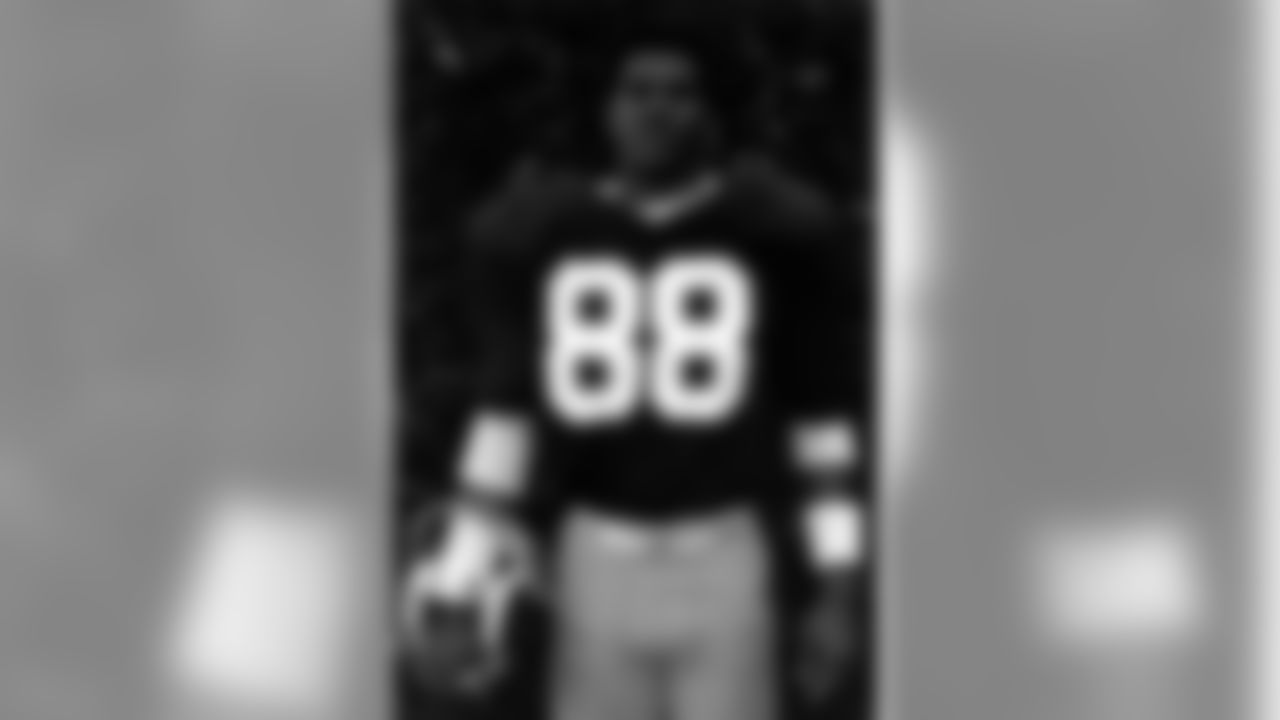









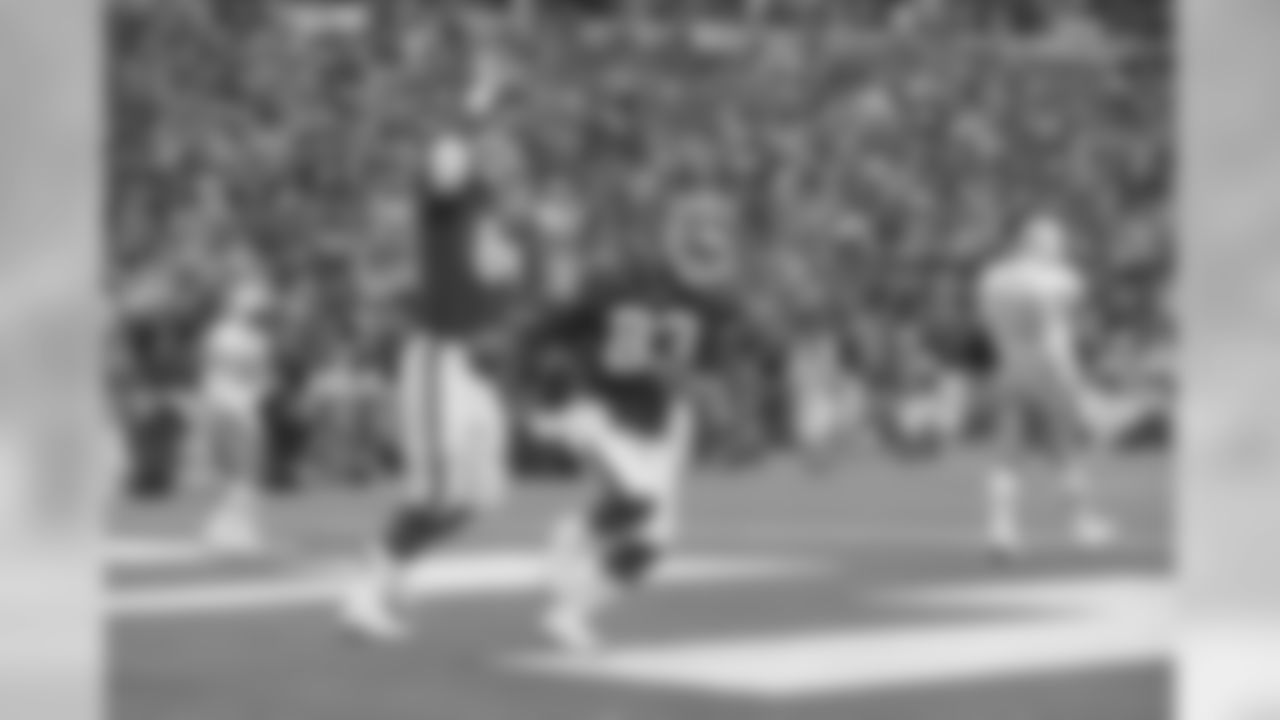














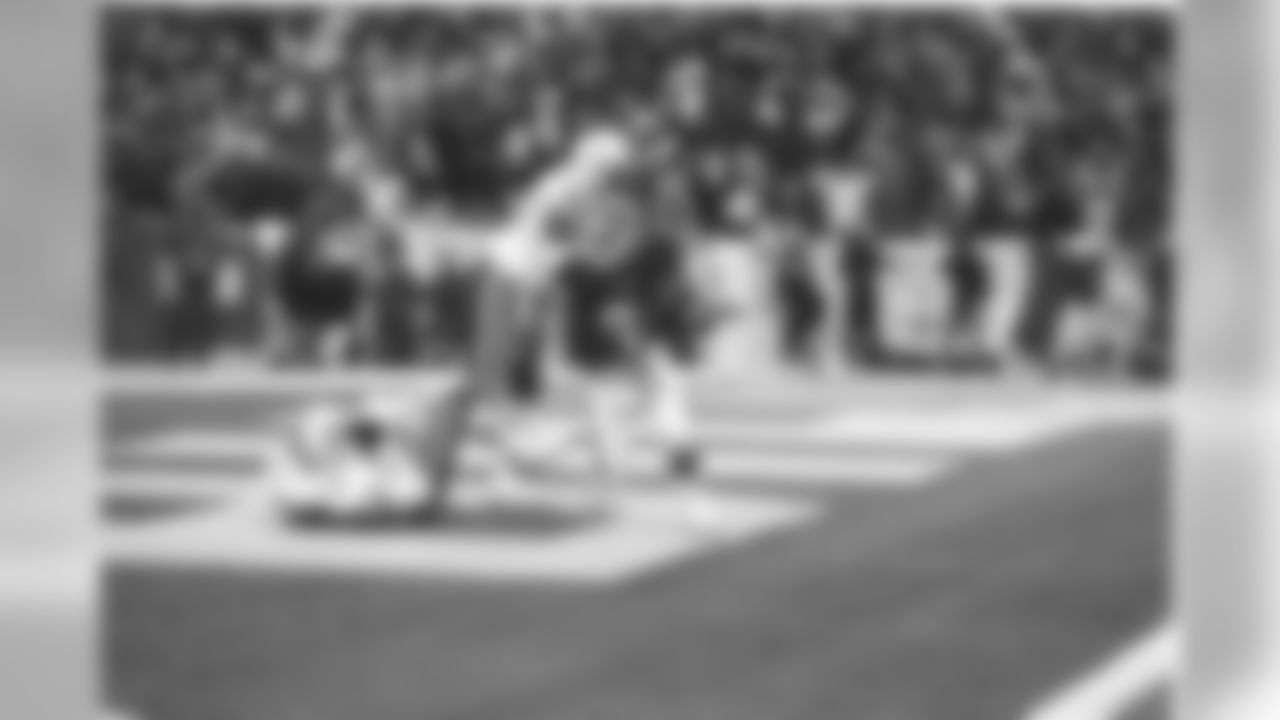








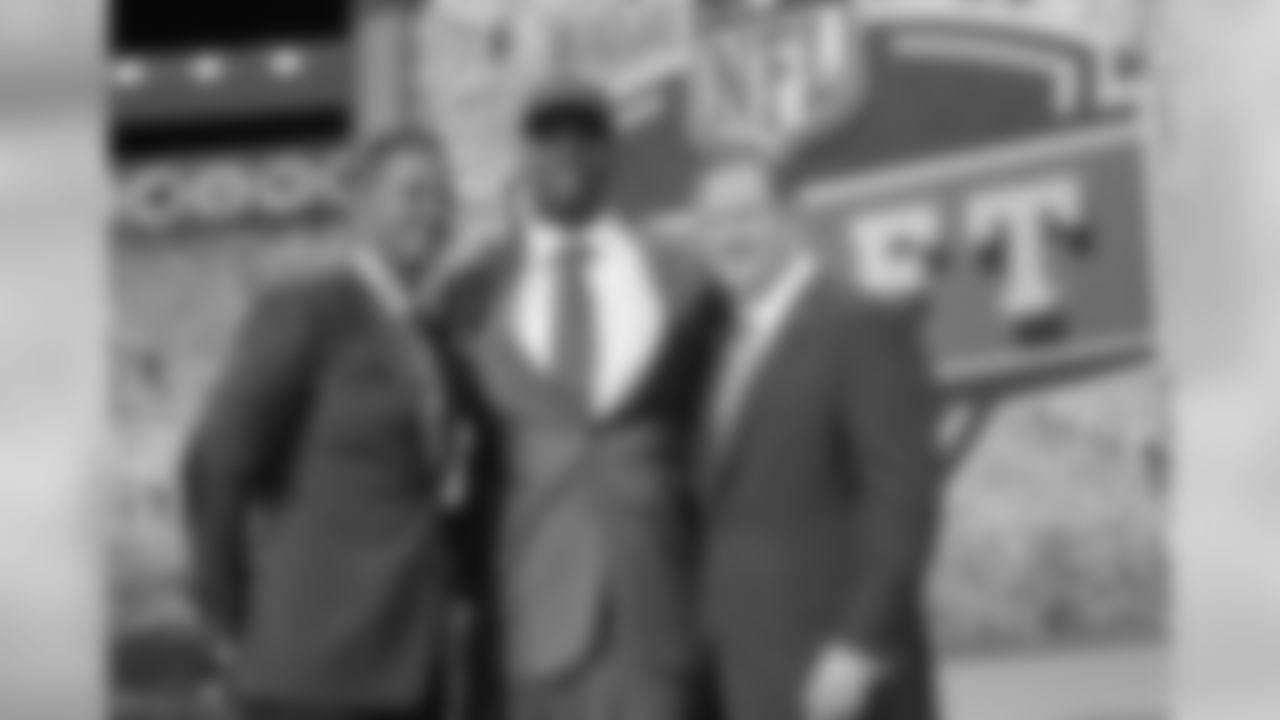
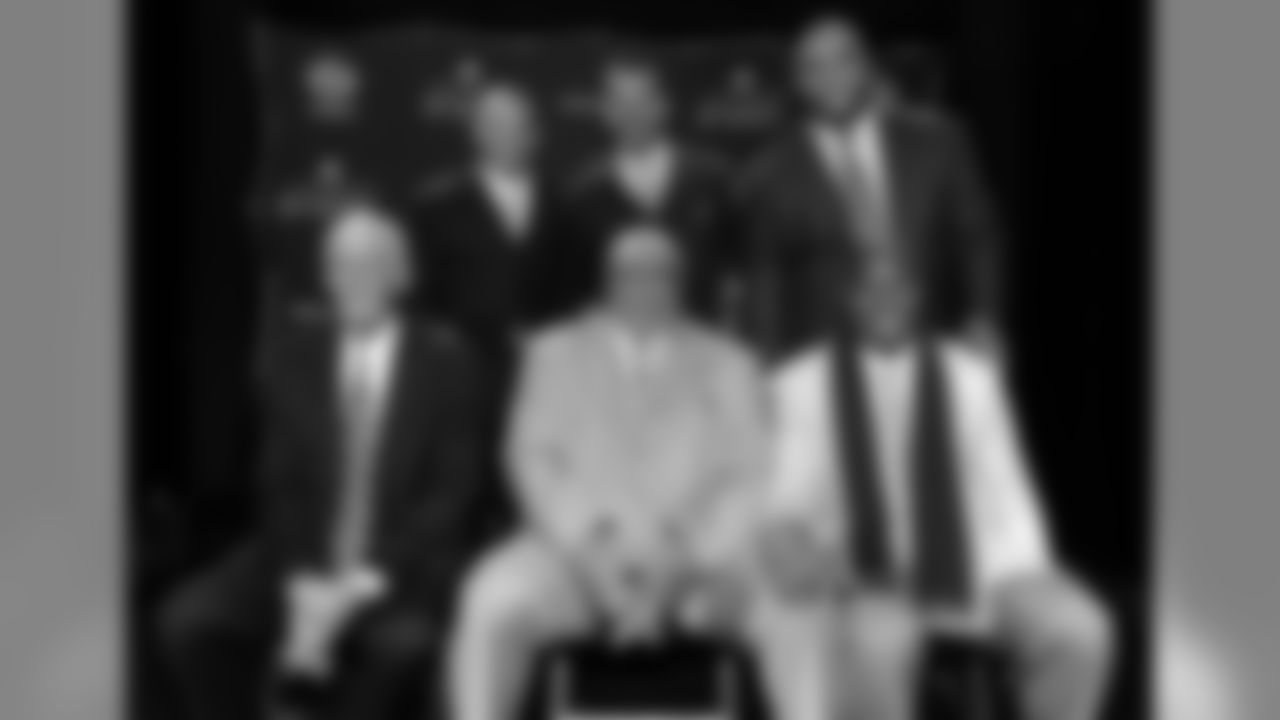
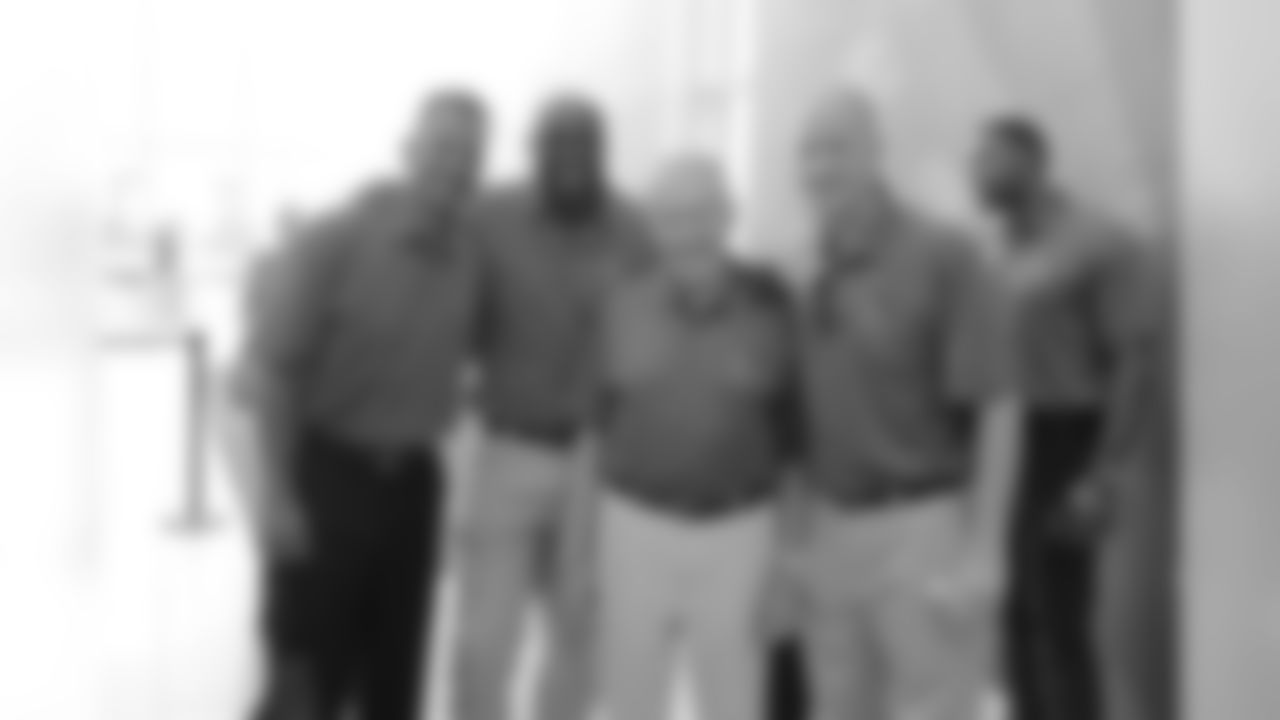
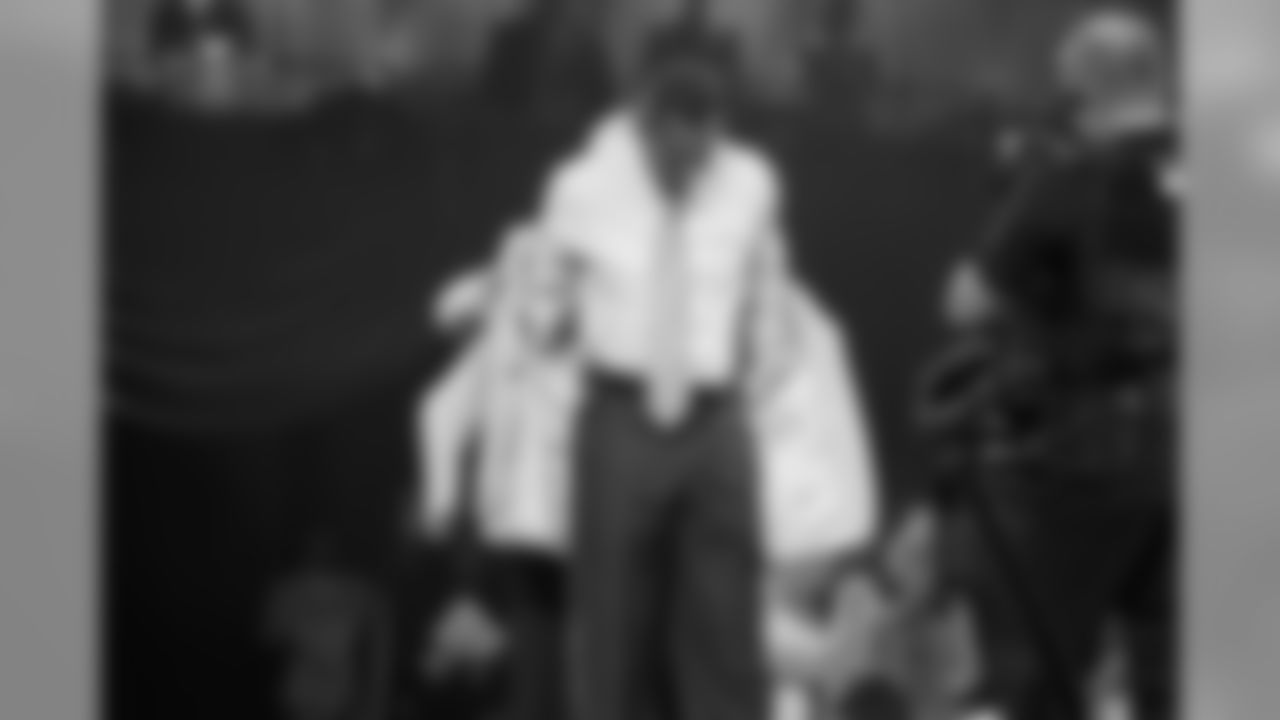

"The second cut down I was sweating because of Marvin Harrison. Yes, Andre had been waiting longer and deserved to go in, but if you're just looking at numbers Marvin Harrison has a lot more numbers," said Gaughan. "When Bettis and Brown didn't make it and then Greene, Haley and Harrison didn't make it I kind of knew."
Reed had made the second cut for the first time and was subsequently chosen for enshrinement gaining the required 80 percent of the vote. Gaughan could finally exhale.
"There was a great sense of relief and justice because by any measure he was one of the greatest receivers in his era," he said. "I think people over time embraced the idea that the top handful of receivers in every era should go in. It doesn't break down perfectly by decade, but seven guys at receiver from the 1960's are in, so why shouldn't there be four from the 90's who are in? In the era in which he played Andre was one of the three or four best receivers."
Paolantonio credits the work of Gaughan for convincing enough voters to move Reed through to the final yes or no vote for induction.
"I hope that Andre Reed when he gets up in front of the crowd in Canton thanks Mark Gaughan for his sheer will power, creative will power, congenial will power," he said. "This is a guy who brought it year in and year out, but never got cynical about it. I didn't hear a single shred of cynicism in his voice. He was always happy to be somebody who was going to lobby in a good way for Andre Reed and he never wavered from that. I think he realized as soon as he became bitter about it that it would hurt Reed's chances."
Sweeter now
The wait was long and arduous at times for Reed, but he now admits that he savors the honor of impending induction all the more because of it.
"Yeah it's sweeter there's no doubt about it," said Reed. "Of course it was always in the back of my mind. There were times I wondered if it was ever going to happen. I have to thank a lot of people for keeping me humble and just really telling me what the process was about. If it happened four or five years ago it would've been sweet, but I think the longer you wait I think it's better because you really appreciate what it means. It really means more after all these years because it seems like it's even more deserving when you wait that long."







